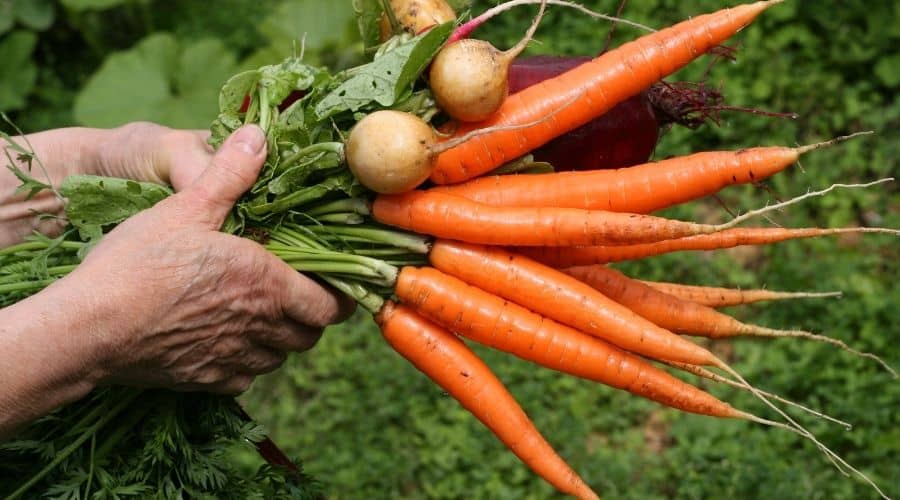
Everyone wants to eat organic food, wear organic clothes, use organic makeup and sleep on organic sheets. But what does organic mean, and why is the world increasingly preferring organic-everything?
Let’s take a look at the difference between organic and non-organic, the effects of non-organic, the benefits of organic, and what you can do to support organic practices.
What Does Organic Mean?
You might have seen products labeled organic or even picked a few items off the shelves because they’re organic. But what does it mean for something to be organic?
Organic products include fresh produce and milk, apparel and beds/bedding, cleaning and household products, nutritional supplements, organic flowers, and even organic pet food.
These products are considered organic because they’re grown or manufactured without synthetic pesticides, sewage sludge, synthetic fertilizers, genetically modified organisms, bioengineering, or ionizing radiation.
Organic food is grown using organic farming practices such as compost, manure, and crop rotation to keep the soil healthy naturally. Plants grown in healthy soil stay resistant to disease and pests. In addition to maintaining healthy plants, organic farming helps to prevent soil erosion and protects local wildlife, streams, and watersheds.
Non-food organic items are produced using sustainable production methods that use less water and energy. The production process typically depends on renewable resources that don’t pollute the environment.
Organic meat, eggs, and dairy products come from animals not given antibiotics or growth hormones.
Any organic product must be certified if it is to be labeled as “organic.”
Organic Vs Non Organic. What is the difference?
Several aspects make organic production different from non-organic:
Soil
Non-organic farming uses artificial fertilizers made from fossil fuel derivatives to add nutrients to the soil. These fertilizers make the soil weak. On the other hand, organic farming uses organic fertilizers such as compost that nurture instead of harming the soil.
Seeds
Organic farming grows seeds organically, and instead of using genetically modified (GM) seeds, farmers will often save seeds from previous crops. Non-organic farming may include using GM seeds that are genetically modified and may cause issues we are not yet aware of.
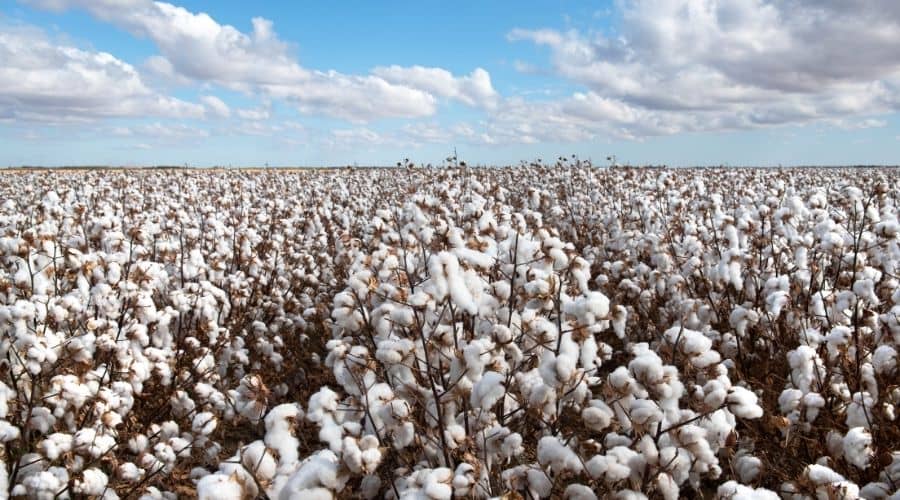
Animals
Animals reared in an organic farm are fed with organic feeds and aren’t given antibiotics or hormones. They’re also treated humanely. Industrialized animal farming uses antibiotics and hormones that humans can easily consume.
Factories
Factories that manufacture organic products focus on sustainability. They will often use eco-friendly manufacturing processes that save water and energy and leave fewer carbon footprints. They also care about the welfare of the workers and will uphold their rights.
Non-organic products’ factories are more concerned with producing as many products as possible at the lower costs possible. This often requires more energy, water, and synthetic chemicals. Many such factories have sweatshops that undermine workers’ human rights.
Issues With Non Organic Farming & Production
Non-organic farming and production are highly discouraged due to several problems caused to people, animals, and the environment. Non-organic farming and industrial production use chemicals that cause serious health issues such as cancer, endocrine disruption, stillbirths, and miscarriages.
These chemicals wash into waterways polluting our freshwater. This reduces the amount of drinking water available to humans—which is already at worrying levels. Non-organic farming is also one of the biggest consumers of freshwater. Stats about water consumption show that only 1% of the water in the world is freshwater and safe and available for us to drink. So the more water we water, the less we have for survival.
Inorganic production is also a huge source of air pollution. Chemicals from factories, fumes from nitrogen-rich fertilizers, and gasoline-powered machinery increase greenhouse gas emissions. Burning fields is another leading cause of climate change due to the carbon released from cutting or burning forests. According to The Food and Agriculture Organization of the United Nations (FAO), the livestock sector alone is responsible for 18% of all greenhouse gas production.
Non-organic practices such as excessive antibiotics in livestock management contribute to antibiotic resistance in humans. Intensive farming that focuses more on high yields than the quality of the products has led to a decline in the nutrient density of crops.

Environmental Benefits of Organic Farming & Production
Choosing organic farming and production over non-organic practices comes with various environmental benefits, including:
- Reduced exposure to pesticides and chemicals: Organic agriculture and production eliminate on average 500 million pounds of persistent and harmful pesticides from entering the environment annually.
- Organic agriculture builds healthy soil: Organic farming builds up organic soil matter better than conventional no-till farming. Organic farming nurtures the soil through organic fertilizers such as compost. It also controls invasive species through crop rotation, cover crops, natural pest control, hand weeding, and animal grazing.
- Organic farming practices combat erosion: In addition to nurturing the soil, organic farming also helps combat erosion, thus increasing the food supply.
- Fights effects of global warming: By refraining from the use of petroleum-based fertilizers and the reliance on sustainable manufacturing practices, organic farming and production help reduce carbon footprint and combat climate change.
- Supports animal health and welfare: Organic practices help preserve more natural habitat areas, thus giving insects, birds, fish, and all sorts of other critters a clean home. Additionally, animals reared on organic farms are exposed to clean, chemical-free grazing that helps keep them naturally healthy.
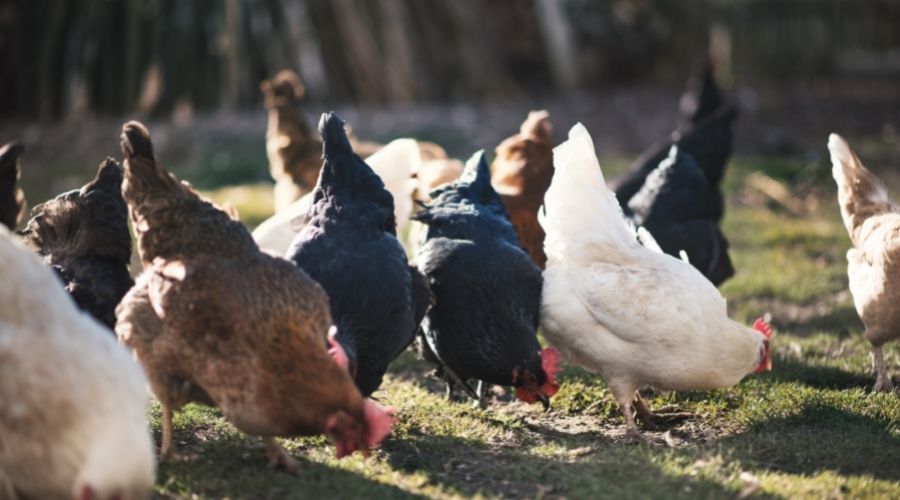
Health Benefits of Buying Organic
Buying organic products can do wonders for your health. Organic milk and meat have about 50% more omega-3 fatty acids than conventionally produced products. Healthy fats are good for your heart, cholesterol, and overall health.
Food grown organically are rich in nutrients, such as Vitamin C, iron, magnesium, and phosphorus. Organically grown fruits, vegetables, and grains are less exposed to nitrates and pesticide residues.
Organic products protect farm and factory workers, their families, and consumers from exposure to toxic and persistent chemicals on the farm, factory, food, the air they breathe, and the water they drink.
Non-food products are also a healthy choice because they’re not made using synthetic materials, chemicals, and dyes which may cause skin irritation.
How Can You Make a Difference
Every time you choose organic, you support human health, clean air and water, nutritious food, and resilient soil.
Here are a few easy ways to go organic:
Buy organic
- Fully understand what makes something organic and then purchase organic products.
- Buy farm produce from your local farmers’ market.
- When shopping for groceries, look for the USDA Certified Organic Seal that shows a product was grown and produced without harmful chemicals.
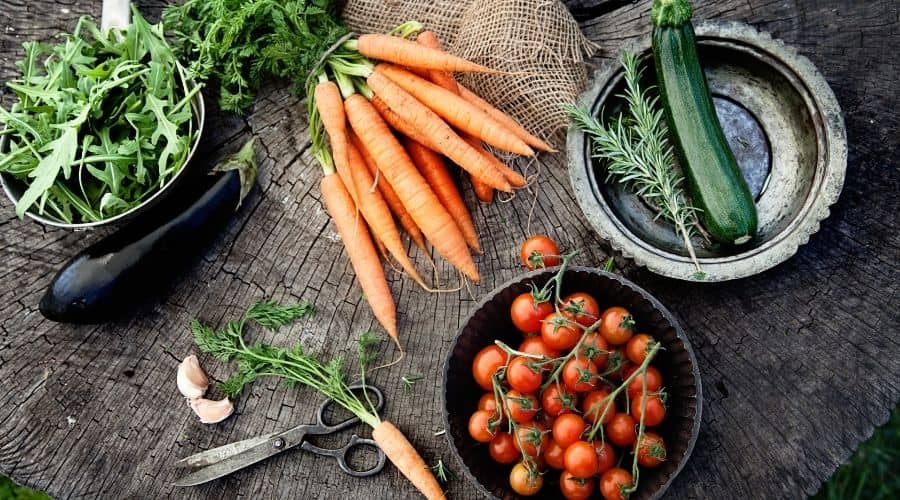
Follow/support organic practices at home
- Learn to compost scraps and use them in your garden instead of throwing them in the garbage, where they’ll add up to the toxic materials in landfills.
- Plant flowers in your backyard garden that will attract native wildlife and pollinators to your area.
- Volunteer in local farms that follow organic practices.
- Use organic products around your home, such as natural cleaning products and sustainable kitchen products.
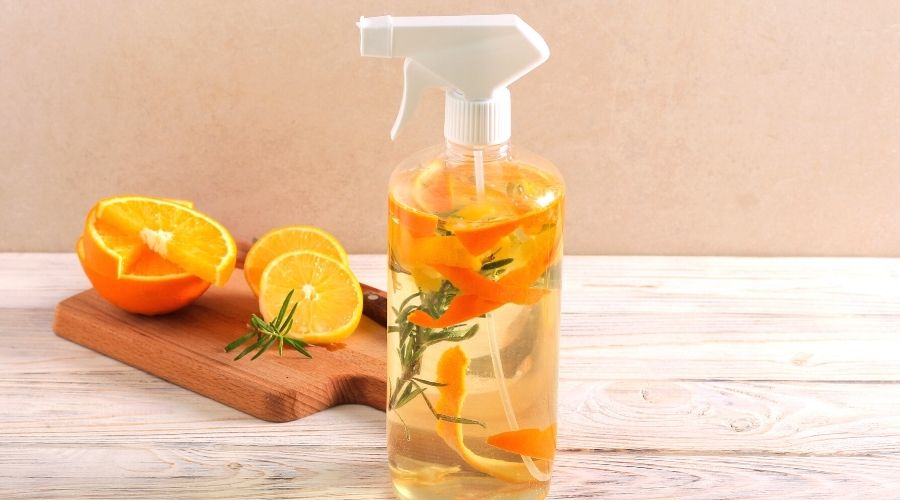
Petition the government
- Petition state and federal policymakers to push for organic practices and research and help affect change on a national level.
- Support/volunteer with organizations that focus on organic production.
If you’re trying your best to make the world a better place and you’ve been wondering what does organic means, hopefully now you have the answers and know what to do. You help raise the demand for organically grown foods and produced products by choosing organic. Farmers and manufacturers will have no choice but to shift to organic processes.
You Might Also Like:

![]() Stella - Writer
Stella - Writer
Stella is a writer and mother from Thika, Kenya.
Her love for nature and the beautiful Kenyan outdoors has inspired Stella to consciously make an effort to lead a more sustainable, eco-friendly lifestyle.


